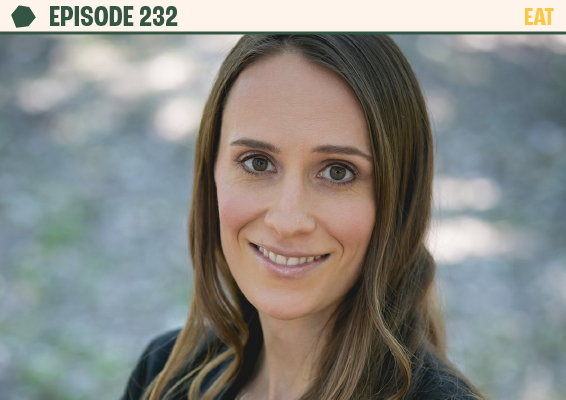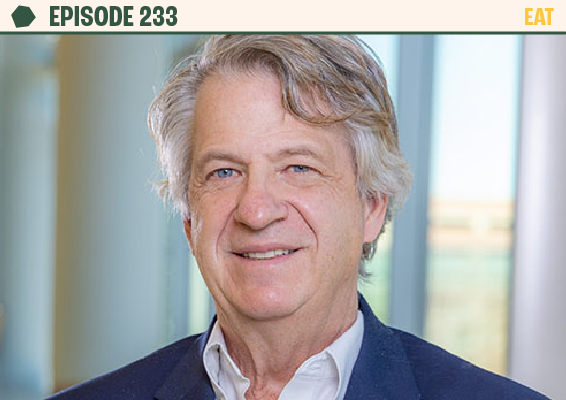In Episode #232, I’m joined by Dr Courtney Peterson to examine the results of her recent study on early time-restricted eating.
“One of the big advantages of Time Restricted Eating is that you don’t have to count calories. You just count time on the clock.”
Time-restricted eating (TRE) is a topic of ongoing interest for those looking to lose weight and improve their health outcomes. However, the frequent discussion of TRE to generate views on social media has diluted some of the evidence on this tool, with online personalities often making bold claims that stray from the scientific literature. In this episode, we discuss the results of a recent study facilitated by Dr Courtney Peterson, framing the conversation around a central question: does early time-restricted eating (eTRE) actually help people lose weight?
Dr Courtney Peterson is an internationally recognised researcher in the field of intermittent fasting. Her research focuses on daily intermittent fasting, which is also known as time-restricted eating. She is currently the PI, MPI, or site PI of seven clinical trials on time-restricted eating and serves as a co-investigator or consultant on another five clinical trials. Regular listeners of The Proof will remember Dr Peterson from Episode #204, where she evaluated fasting controversies and how to evaluate evidence alongside Dr Emily Mangoogian. As a true expert in this field, Dr Peterson offers a closer look at both the evidence on eTRE and the intricacies of scientific studies.
“We were very intentional, we wanted to ask a very clear, rigorous question: are there any extra benefits, does intermittent fasting help you lose weight?”
This episode focuses on early time-restricted eating: consuming food in the early part of the day and finishing dinner in the mid afternoon. We examine her recent study, looking at study design, rationale, and results. Dr Peterson answers common questions about eTRE, including whether it can help you lose weight, shred fat, and curb your appetite. We also discuss meal timing for shift workers, TRE and cancer, and how you can implement TRE into your own lifestyle.
Specifically, we cover:
- Intro (0:00)
- New Study: TRE & Weight Loss (1:47)
- Subjects of study (6:35)
- Outcomes of Interest (10:06)
- Significant Results (13:56)
- Mindset (18:43)
- Early TRE (20:13)
- Appetite (27:27)
- Blood Pressure (29:44)
- Adverse effects (34:30)
- Mental Health Effects (35:58)
- Making it Your Own (36:42)
- Night Shift Workers (43:41)
- Cancer (48:33)
- Rejuvenation & Longevity (56:46)
- Outro (58:53)
If you’re interested in time-restricted eating or improving your health outcomes, Episode #232 is a very beneficial listen. Dr Courtney Peterson’s outstanding positioning in her field situates her to provide a highly educated perspective on TRE, clarifying the evidence and offering guidance to implement it yourself.
You can learn more about Dr Courtney Peterson here. Dr Peterson is currently recruiting for a new study on intermittent fasting and aging, which you can check out here. Make sure to listen to Episode #204 of The Proof, where Dr Peterson is joined by Dr Emily Manoogian to discuss fasting controversies.
The best way to support the show is to use the products and services offered by our sponsors. To check them out, and enjoy great savings, visit theproof.com/friends.
Enjoy, friends.
Simon
More about Courtney Peterson, PhD
Dr. Courtney Peterson is an internationally-recognized researcher in the field of intermittent fasting. Her research focuses on daily intermittent fasting, which is also known as time-restricted eating. Dr. Peterson conducted the first controlled feeding trial of intermittent fasting in humans and was the first to test early time-restricted eating (eTRE) in humans, a version of TRE that involves eating early in the day to be in alignment with circadian rhythms in metabolism. Her research established that eTRE can improve insulin sensitivity, glucose levels, blood pressure, and oxidative stress, even in the absence of weight loss. She also demonstrated that eTRE does not affect energy expenditure but does affect fat oxidation, metabolic flexibility, and appetite hormones, including ghrelin, leptin, and PYY. Further, her research has established that eTRE affects molecular pathways involved in longevity and autophagy. Currently, she is the PI, MPI, or site PI of seven clinical trials on time-restricted eating and serves as a co-investigator or consultant on another five clinical trials. She currently is the PI of the largest randomized controlled trial of intermittent fasting in humans—a 344-person study in adults with type 2 diabetes. As secondary interests, she also performs mathematical modeling of body composition and metabolic data. For instance, her research showed that the tri-ponderal mass index better estimates adiposity in adolescents than BMI. Her research has been featured in more than 50 media outlets, including NBC Nightly News, The New York Times, The Washington Post, Wall Street Journal, Good Morning America, the BBC, and Scientific American, and has reached a circulation of more than 104 million people around the world.
Supporting studies
- Early Time-Restricted Feeding Improves 24-Hour Glucose Levels and Affects Markers of the Circadian Clock, Aging, and Autophagy in Humans PMID: 31151228
- Effectiveness of Early Time-Restricted Eating for Weight Loss, Fat Loss, and Cardiometabolic Health in Adults With Obesity: A Randomized Clinical Trial PMID: 35939311
- Fasting and cancer: molecular mechanisms and clinical application PMID: 30327499
- Nightshift Work and Nighttime Eating Are Associated With Higher Insulin and Leptin Levels in Hospital Nurses PMID: 35615722
- Prolonged Nightly Fasting and Breast Cancer Prognosis • PMID: 27032109
- Time-Restricted Eating and Cancer: Clinical Outcomes, Mechanisms, and Moderators • gov (in progress)








